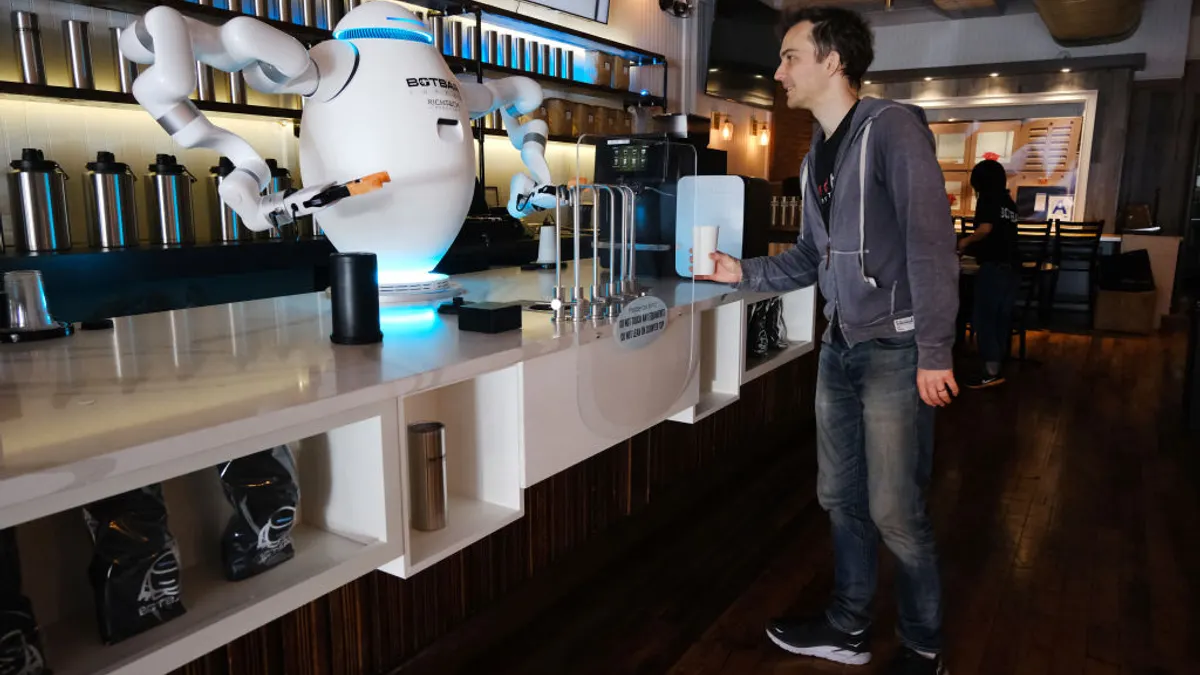A virtual reality environment can help employees who work with robots practice complex tasks, according to new research from the University of Georgia.
In the recycling industry, for instance, workers may use robots to disassemble electronics into separate parts for valuable materials or proper disposal. However, disassembly can be difficult to learn and implement in training, so researchers created a VR environment to help employees practice taking apart recyclables without damaging materials or hurting themselves.
“There are a lot of tasks. It requires a complicated training for workers, typically,” said Beiwen Li, a researcher and associate professor at UGA’s College of Engineering. “So, if we have a VR system, that will be very helpful in shortening training time. It is much easier than having pages and pages of written documents to be read by the user.”
During the VR training experience, workers followed a procedure for disassembling a hard disk with robotic assistance. The program measured the task time, reported mistakes and provided feedback.
As part of the training, the VR tracking system followed the user’s upper body, allowing it to plan the robot’s movements, prevent collisions and provide warnings about potential hazards or injuries.
Using robotics for disassembly can help reduce the labor shortage in the recycling industry, Li said, adding that VR environments could make training faster and easier for other tasks as well.
Across the southeastern U.S., VR educational tools aid workers in the electric vehicle and battery manufacturing industry. Through grants, state and federal programs are investing in research and training at technical colleges to prepare the local workforce.













